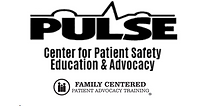New Mothers

WHAT IS AND ISN'T AN EMERGENCY?
Young mothers living in shelters were taught to keep their child’s medical history, and lists and records of all medications. They were encouraged to ask questions and prepare for each medical visit with a list of questions and concerns. They designed and decorated folders for their medical history and their children's history.
The Housemothers found that the girls were calling an ambulance when it seemed inappropriate. The team at Pulse found the girls did not understand what a true emergency is, or when it is appropriate to call an ambulance and when that should be avoided. Following is the policy developed to be used at the homes. The policy was developed with the girls as active participants, healthcare providers and a paramedic.
What is an Emergency?
“Emergency” can mean many things to many people. A guide is needed.
You should call an ambulance if the person:
-
Has a condition that appears life-threatening
-
Is unresponsive
-
Is spurting blood (or blood lost would fill more than two cupped hands)
-
Is not breathing and you can’t get them breathing again, or is turning blue
-
Has a head injury
-
Has continuing chest pain of unknown cause
-
Has ingested poison
-
Has a sudden rise in temperature, causing convulsions
You should call an ambulance if the person’s condition could worsen and become life-threatening on the way to the hospital due to, for example:
-
Uncontrolled asthma
-
Choking, not breathing and food still stuck
-
Profuse bleeding (or blood lost would fill more than two cupped hands)
You should call an ambulance if moving the person could cause further injury because the person is:
-
Unresponsive
-
Penetrated by a large impaled object
-
Has broken bones
-
Is unresponsive after a fall
You should call an ambulance if the person needs the skills or equipment used by paramedics or emergency medical technicians, as in cases of:
-
Severe allergic reaction / Epinephrine
-
Severe uncontrollable asthma attack / nebulizer/ oxygen
-
Injured back and need to stay flat / flat board
-
Broken bones / splint
-
Heart attack / defibrillator
Other things to consider: would the distance or traffic conditions cause a delay in getting the person to the hospital?
-
Weather conditions - If it is very dangerous an ambulance may not come
-
Rush hour
Remember:
-
You will need a ride home from the hospital.
-
In some cases, you will be charged for the ambulance.
-
Keep medical records and medication lists available in case of emergency.
-
It’s OK to call your doctor first.




